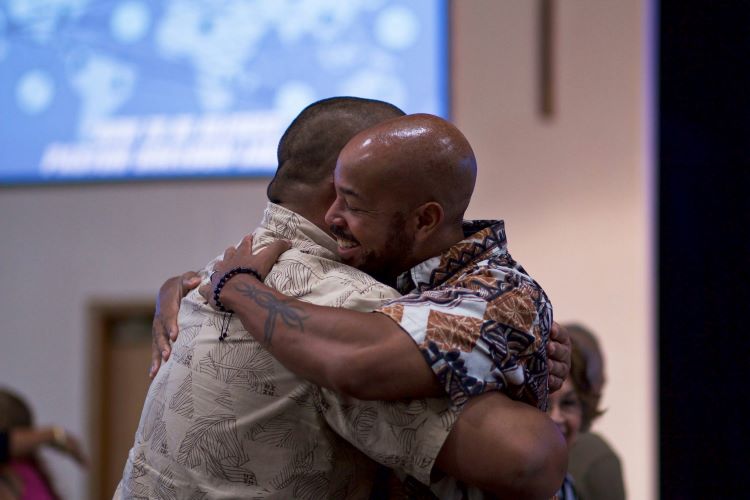Family Therapy for Addiction
Quick links for Family Therapy for Addiction
- How can family therapy help with addiction?
- What types of family therapy are there for addiction treatment?
- Who can attend family therapy for addiction?
- How are family members affected by addiction?
- What happens if my family member doesn’t want to participate in family therapy?
- References for family therapy for addiction
While addiction may be intensely personal, it also has the potential to impact an entire family unit.
The shadow cast by a substance abuse disorder stretches far and wide, and in some cases can tear a once close-knit family apart.
In these cases, family therapy can assist in healing the wounds caused by substance use disorder or any type of addiction.
The support and guidance of family members can also motivate change and recovery, with the individual safe in the knowledge that they are loved and supported by those closest to them.
How can family therapy help with addiction?

Family holding hands during family therapy for addiction
Family therapy has been proven to have a positive effect on addiction recovery, [1] both for the individual and the family as a whole.
Below are some of the main ways that family therapy can help with treating addiction:
1. Provides support
Feeling isolated and unsupported are some of the key factors that may prevent someone dealing with a substance abuse disorder from seeking treatment and recovering.
Hearing their family members discuss how much they care for them and watching them overcome their own destructive behaviours can motivate the individual to take steps towards recovery and long-term abstinence. [2]
2. Encourages communication
It can also be helpful for family members to discuss how the addiction has affected them and discover the various ways in which they may have unknowingly enabled it.
Simply expressing their feelings to both fellow family members and to the individual dealing with a substance abuse disorder can help them come to terms with the addiction and move forward with a healthier mindset.
3. Teaches coping strategies
Therapy can also provide family members with coping strategies and tools to prevent them from enabling the addiction any further.
These can include refusing to lend money to the individual, making excuses for them or denying that there is a problem.
While these strategies may feel uncomfortable and difficult to put into place, they are a form of support and will only help the individual on their recovery journey.
4. Brings the family together
Finally, coming together as a family to openly discuss substance abuse and other problems that stem from it can help each person to heal and feel like part of a team. While addiction has the power to tear families apart, therapy can help to bring them back together again.
What types of family therapy are there for addiction treatment?

Group of people sat together in a circle during family therapy for addiction
Family therapy is not a one-size-fits-all solution to addiction. There are a number of different methods of treatment designed to help with specific problems, as no two families are the same.
Many family therapists will specialise in one or two forms of treatment, so it’s important to connect with someone who understands your family’s needs and has the skills and expertise to provide support and guidance throughout the process.
Some of the more common types of family therapy for addiction include:
1. Strategic family therapy
This form of therapy is based on improving communication between family members and coming together as a team [3] in order to solve problems and move forward as a connected family unit.
The emphasis is not on the addiction itself, but rather the way the family deals with the addiction.
2. Systemic family therapy
Based on the theory that one individual’s addiction can be a reflection of the behaviours of the entire family unit, systemic family therapy aims to explore the ways in which the rest of the family are potentially enabling the addiction.
This can allow the family to see the addiction as something to be overcome together, instead of merely being one person’s problem. [4]

Couple talking with a therapist during family therapy for addiction
3. Family behaviour therapy
Often based on cognitive behavioural therapy, this is one of the most widely-used methods and engages each family member in the recovery process.
Families are encouraged to work with the individual to support their recovery goals and encourage the development of healthy behaviours, while simultaneously making changes to their own unhelpful behaviours and thought patterns.
4. Multidimensional family therapy
Generally aimed at adolescents with substance abuse disorders, this form of therapy focuses on the behaviour of the parents and the role they may have played in the development of this addiction.
The therapist will often work with the adolescent and the parents separately, which may help both parties feel comfortable enough to speak freely.
5. Intervention
While an intervention is not generally seen as an official family therapy session, it can be a much-needed opportunity for friends and family to convey their feelings regarding their loved one’s addiction and express how much their behaviour is affecting them.
This is especially true when the intervention is managed by a professional, as this generally allows the session to run more smoothly with everyone given adequate time to speak.
Who can attend family therapy for addiction?

Family therapy for addiction in progress at a drug and alcohol rehab clinic
The definition of ‘family’ has fluctuated throughout the years, with blended families and even friendship families becoming more common.
Therefore, almost anyone can attend family therapy even if they are not related by blood or do not live in the same household.
Some examples of people who can attend family therapy include:
- Parents
- Step-parents
- Children
- Siblings
- Step-siblings
- Grandparents
- Godparents
- Cousins
- Aunts and uncles
- In-laws
- Friends
- Colleagues
- Mentors
- Sponsors [5]
- Family friends
The effects of addiction cast a wide net, and anyone who cares about the individual can be personally affected by their behaviour.
If you would like a particular person to attend family therapy, make your feelings known to your counsellor and they will do their utmost to accommodate them.
You can learn about how to access local rehab treatment here.
How are family members affected by addiction?

Individual patient discussing family therapy for addiction with a therapist
When an individual develops a substance use disorder, their entire family unit can be affected.
Below are some of the most common ways that parents, children, siblings and other loved ones may be impacted by a family member’s addiction.
Childhood development
Children can be severely affected by substance abuse in the family, particularly if the individual is their parent.
They are more likely to suffer from anxiety and depression, take on additional responsibilities that may not be age-appropriate and fall behind at school.
As they grow older they are at higher risk of addiction themselves as they may see substance abuse as a way to escape from the pressures and stress of life. [7]
Safety
When an individual is dealing with a substance abuse disorder, the safety of other family members may be at risk. Due to frequent mood swings, they may lash out verbally or physically and potentially be unable to control their actions, leading to both physical and emotional harm.
There may also be items such as needles or other drug paraphernalia left around the house which could put children in particular at risk of injury.

Two people embracing during family therapy for addiction
Stress and anxiety
Many family members report feeling extreme levels of stress and anxiety when someone they care for is dealing with an addiction.
They may stay up all night waiting for them to get home, constantly feel the need to check on them and spend the majority of their life worrying about their welfare.
Relationship breakdowns
Addiction has the potential to destroy relationships and tear families apart if not properly treated and managed.
Family members may feel emotions such as anger, guilt, shame and resentment towards the individual struggling with an addiction, particularly if they believe that the individual is receiving the majority of the attention and support within the family.
Financial issues
Family members may feel obliged to lend money to individuals dealing with a substance abuse disorder due to a fear that they may begin committing crimes or behaving recklessly in order to fund their addiction.
In some cases, the individual may even steal from their family members, and in both instances, this can lead to mounting financial pressure and strain.
Denial
Certain family members will often refuse to accept that their loved one has a problem with substance abuse, potentially due to feelings of shame and guilt. This is more commonly seen in parents who have a child with an addiction, and this can prevent the individual from seeking medical assistance and beginning the recovery process.
What happens if my family member doesn’t want to participate in family therapy?

Family holding hands during a session of family therapy for addiction
Although family therapy can be extremely beneficial to all involved, some members of the family may refuse to participate.
This may be due to feelings of resentment towards the individual dealing with a substance abuse disorder or even to members of the wider family, as well as fear that the therapy treatment may not be effective.
They may also feel burned out and unwilling to discuss the addiction any further, instead choosing to focus on their own life and distancing themselves from the individual.
All of these reasons are understandable, and the family member should not be shamed for making this choice.
Therapy can only be effective if all participants are motivated and willing to put in the work, so in some cases, it may be beneficial for certain family members to opt out.
There is a chance that the family member may change their mind once they see positive changes taking place, particularly if they have the opportunity to meet individually with the therapist and discuss their personal reasons for the initial hesitation. However, the desire to recover should not be contingent on the support of anyone else and must ultimately come from within.
To find out just how effective family therapy could be for your recovery journey, give our team a call today on 0800 326 5559
References for family therapy for addiction
- https://www.ncbi.nlm.nih.gov/books/NBK571088/
- https://www.ncbi.nlm.nih.gov/books/NBK64269/
- https://www.ncbi.nlm.nih.gov/pmc/articles/PMC3995135/
- https://www.monmouth.edu/graduate/documents/family-therapy-working-with-challenging-family-dynamics-in-effective-manner.pdf/
- https://www.ncbi.nlm.nih.gov/pmc/articles/PMC7967695/
- https://www.ncbi.nlm.nih.gov/pmc/articles/PMC3725219/






